TI Tag-it HF-1 Standard Card, TI256 Card.
Radio Frequency Identification(RFID) Systems
Across the world, highly sophisticated datamanagement systems track inventories, control quality, automate accounting, and try to keep track of the fast-moving business world. These systems rely on accurate data collection—not always possible with manual approaches, or even barcode systems. A breakthrough in radio frequency identification (RFID) called “smart labels” is delivering dramatically higher levels of performance in automatic identification and tracking. Tag-it™ smart labels are a part of the applicationproven Texas Instruments RFID family of products that offer state-of-the-art solutions for automatic data collection.
Making Labels Smart:
Tag-it smart labels from Texas Instruments bring affordable RFID technology to a wide range of new applications. Providing a wireless link between products and information management systems, the consumable Tag-it transponder consists of an integrated circuit and an antenna. It has no battery. When energized by radio signals from a fixed-position reader or handheld scanner, it returns stored data.Tag-it smart labels are read/write, allowing users to re-program individual pages of memory many times. The ultra-thin transponder can be easily laminated between layers of paper or plastic for integration with existing labeling systems, including standard barcode printers and scanners.
For developers of identification systems, the Tag-it family of RFID components offers the advantages of an industry-leading technology that provides cost-effective solutions for many applications. Features, such as simultaneous identification, make Tag-it ideal for RFID innovations in a wide variety of markets. Exciting new uses are now possible, such as tracking goods throughout their assembly and distribution cycles. High-volume applications that can benefit from the technology include rapid parcel delivery, airline baggage tracking, and access control. In addition, since counterfeiters find replication of these devices difficult, smart labels can aid in helping purchasers identify genuine merchandise. Tag-it identification integrates seamlessly with existing information management systems and can coexist with other forms of data capture such as barcode. Read/write modules are compact and can communicate with Tag-it transponders without contact, simplifying the automation process. TI’s strength in chip design, digital technology, and volume manufacturing benefits Tag-it products and customers. End users can rely on TI strategic partnerships for the delivery of customized products, as well as turnkey solutions through systems integrators.
The materials used in Tag-it transponders are environmentally friendly and can be easily disposed of using conventional techniques.
Label Communicates Through Specially Designed Computer Chip.
Measurable Advantages Faster, More Reliable Scans + Less Shrinkage + Better Asset Utilization + Brand Protection = Lower Cost
Unlike barcodes, the innovative RFID transponder inlays used in Tag-it smart labels can be read without line-of-sight and in any orientation. Smart labels are ideally suited for applications in harsh environments, such as under conditions of extreme temperature, or where dirt and moisture are prevalent. With their read/write capability, the inlays provide for a two-way exchange of information with reader modules, allowing users to update the data stored in the smart label’s memory anywhere along its movement. The reader can also rapidly and simultaneously identify numerous smart labels in the antenna’s field—an important step forward in RFID technology. Data collected from smart labels can be sent to a host computer through standard interfaces or can be stored in a portable scanner for uploading later. Since the Tag-it transponders respond only to signals from the Tag-it reader, they can co-exist with other RFID systems.
Reliable, cost-effective and informative, proven RFID technology provides the dependability needed for high-volume scanning applications and eliminates the need for manual sorting, recording, and checking. Labor and error costs are reduced. Throughput is increased. Managers gain the ability to make better decisions based upon complete and up-to-date information.
Integrators have a wide choice of options in designing automatic data collection systems based on Tag-it technology. The Series 6000 Reader System includes several models that support high performance and long read range capability. These readers can be used in fixed configurations, for example, to scan items moving along conveyors at high speeds. Reader products can be purchased as boards or as fully housed units. The S6000 Reader System communicates with Tag-it smart labels and passes that data through standard interfaces to a host computer, programmable logic controller, or other intelligent device for processing.
A software program called the Tag-it Navigator is available free of charge. The program can be installed on a desktop computer connected to an S6000 reader; allowing access to all the reader’s functions. The Navigator enables users with minimum programming skills to immediately use an S6000 system.
For ease of development, TI offers a development kit that includes the two components of a housed reader and housed antenna. Along with the Navigator software, this kit provides a powerful tool to immediately use the Tag-it technology. Demonstrations and feasibility projects can be created with little effort. Due to differences in radio frequency approval limits in the US and Europe, developer kits are available with different power settings respectively.
RFID technology can connect all phases of the supply chain, from resourcing and manufacturing to inventory control and distribution. Today, advanced data management systems are in use around the world, improving these and a variety of other vital business functions. RFID provides the ideal enhancement to these systems, adding a new level of sophistication to the speed and reliability of data capture. Tag-it can provide an economical method of tracking individual items without contact, through all stages of manufacture, distribution, and after sales support — even disposal and recycling. It simplifies warehousing, provides flexibility for mixed consignments, and assists in accountability transfers.
Based on TI’s Tag-it RFID technology, the 3M™ Digital Identification System is being used by libraries to streamline the flow of books and other materials, as well as reduce losses. Items are identified with Tag-it smart labels carrying a unique, tamperproof identification code. Librarians and patrons use the 3M™ SelfCheck™ System that reads the smart labels to check items in and out. The process is faster and more accurate than with traditional optical barcode labels. Besides the unique identification number, the labels can be programmed with additional information, such as type of media and storage location. Since the labels are rewritable, they don’t have to be replaced when updating an item’s circulation status or flagging a book for reservation. The main goal of libraries is to improve service to their patrons by improving inventory management. They are also finding new ways to take advantage of tagged items, such as gathering statistics on items used most often and quickly scanning shelves for misplaced books. Their conclusions, RFID tracking greatly improves materials management and optimizes resources.
The airline industry constantly struggles to successfully deliver each bag to each traveler’s destination. In spite of the use of modern technology, last year millions of bags were lost, or delivered late,—costing the industry billions of dollars. Problems like this have encouraged airlines to look for new solutions, such as smart labels, to make dramatic improvements in baggage deliveries. As Tag-it labeled suitcases pass through an airport’s baggage handling system, the sorting and tracking computers read each bag’s information and flight details with almost 100% accuracy, regardless of the orientation of the bags or the speed of the conveyor. Extreme environmental conditions have no adverse effects on Tag-it smart labels. They can tolerate complete immersion in water and continue to function with the same high degree of accuracy. Smart labels also make it feasible to offer home baggage check-in, collection from railways, and dynamic baggage rerouting. Fast, dependable baggage sorting, fewer delays, reduced insurance claims — it’s a low-cost way of increasing customer satisfaction while improving profitability.
For express parcel delivery firms, Tag-it helps automate the sizable task of real-time record keeping. Leading label converters who serve this industry have integrated smart labels into standard label stock. When the parcel label is created in a printer, the smart label is programmed with pertinent information such as tracking number, sender/receiver, and final destination. It also carries a bar code and human-readable information. As the package travels through the delivery process, stationary or handheld scanners can track it. Labels can be updated at any point; parcels can be rerouted while in transit; and multiple packages can be read at conveyor speeds of up to two meters per second. The ability of RFID to reliably read multiple parcels simultaneously results in unprecedented throughput while dramatically cutting handling costs.
The loss of important document files in paper intensive businesses such as medicine, law, and insurance can cause severe problems. RFID can be used to improve the management of documents so that files can be quickly located and document workflow easily tracked. Each file is tagged with a smart label containing a unique ID. The file description and tracking number are entered into a database. The file can be assigned a variety of parameters, such as expiration date, permitted movement, and access authorization. Over time, the database builds an audit trail of the handling and workflow history of each document file. Employees can locate a file by entering a request in their desktop PC or searching with a handheld scanner. This approach greatly reduces the time now wasted searching for a document.
As trade expands worldwide, counterfeiting, diversion,organized fraud, and tax avoidance are on the increase. With web marketplaces exploding and the expansion of business-to-business e-commerce, the problem will get worse. Combating these problems effectively requires identification technology that is cost-effective to use, yet prohibitively expensive to copy. Smart labels are used in the manufacturing of expensive branded merchandise, where they are embedded directly into products such as clothing and designer goods. Once a smart label is included in an item, it not only provides absolute authentication from manufacturing to retail, but can also be updated with shipping and sales information and other useful data. Smart labels are also embedded in items like printer ink cartridges to ensure that only the correct consumable replacements are used in equipment.
RFID technology is answering the challenge of providing high-level security and access control, while minimizing inconvenience for authorized personnel. Companies in the security field are incorporating Texas Instruments RFID into systems for perimeter protection and control at entries and exits. Transponders can be laminated into employee badges with readers mounted at doors or inside of walls. Doors and gates unlock only in response to a valid authorization number.
Ski resorts are using smart label technology in lift tickets and passes. They not only authenticate the ticket as genuine and valid for that date and time, but also increase the traffic-flow rate on the lifts since passes can be read on the fly. The reader signals if there is a problem with a particular ticket. Skiers pass quickly through lift gates without having to remove their gloves to swipe a card, making their experience more pleasurable.
The Industry Leader In RFID
Texas Instruments established TIRIS (Texas Instruments Registration and Identification System) as a worldwide business venture in early 1991, becoming the first multinational semiconductor company to develop and market RFID systems. Fusing together core competencies in advanced semiconductors, microelectronic packaging, and computer system design, TIRIS has become a standard-setting technology used in thousands of object tracking and data collection applications around the world. Today, TIRIS is the leading supplier of a comprehensive range of fieldproven RFID products used in a broad variety of applications. The open platform design philosophy allows rapid, low-cost adaptation to specific requirements in identification. Continually researching enhancements to its products to bring you new uses for RFID, TI is also participating in the development of worldwide RFID standards to ensure that its systems remain both compliant and versatile.


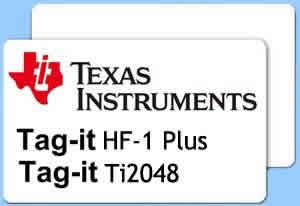

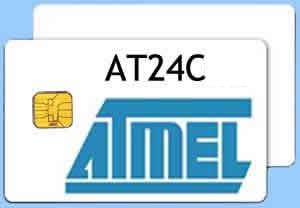
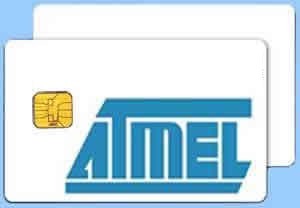
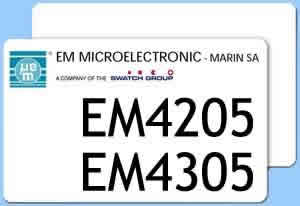
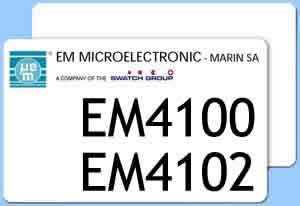
Reviews
There are no reviews yet.